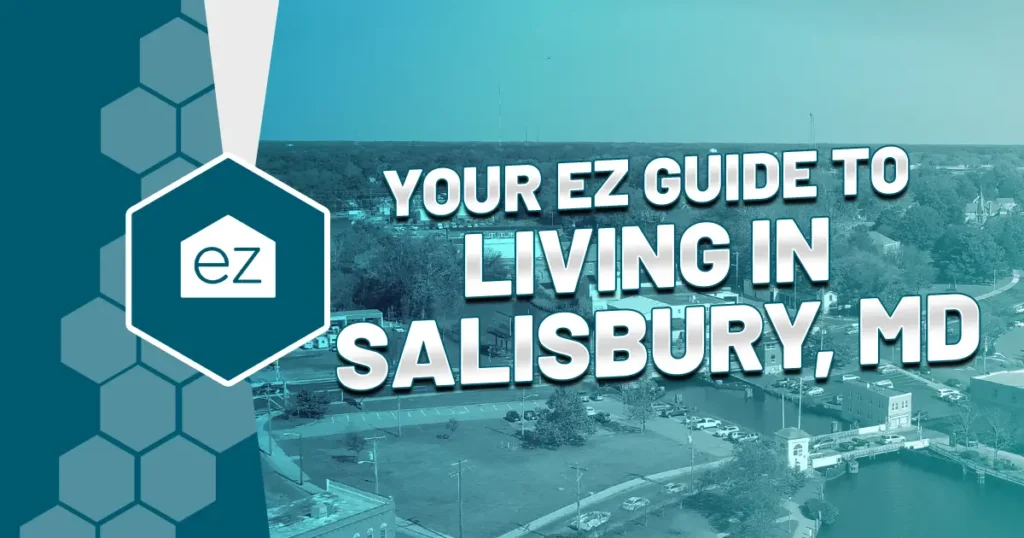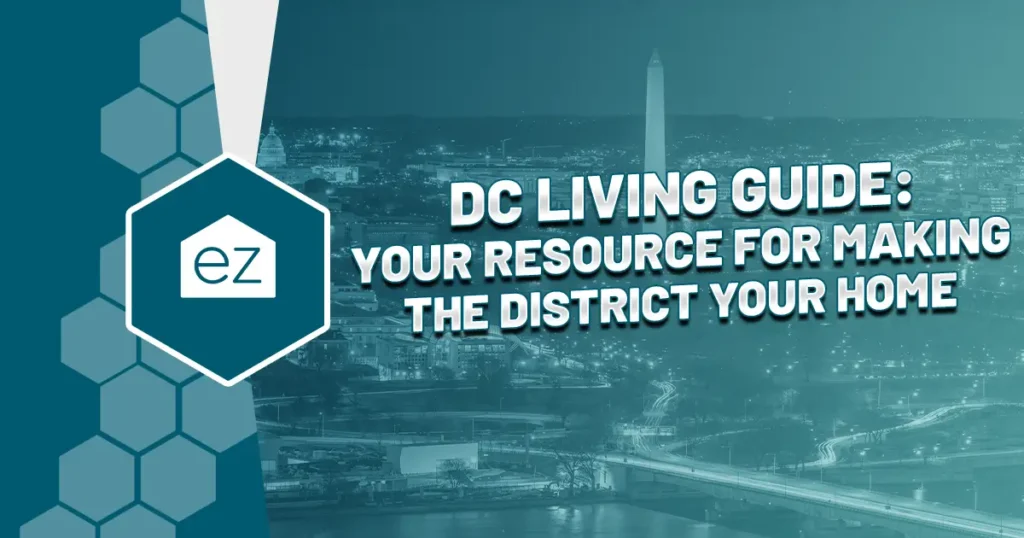16 Things You Must Know About Florida Before You Move
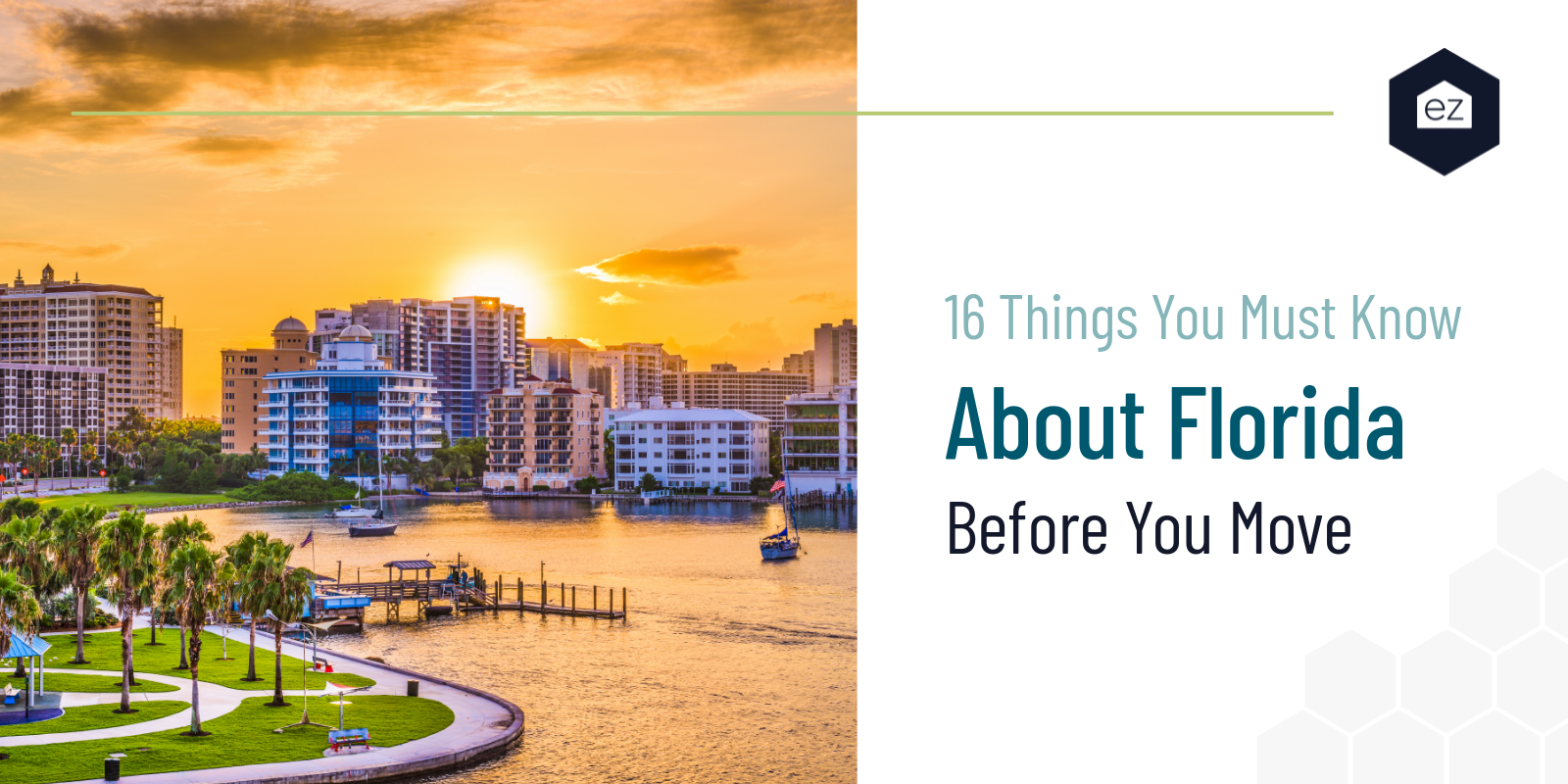
16 Things You Must Know About Florida Before You Move
Did you know that over a thousand people move to Florida EVERY DAY?
Yes, the Sunshine State is a popular destination for retirees, families, and young people looking for a change of scenery. If you’re one of them or are considering it, read on. Before you pack your bags and head south, there are a few things you should know about living in Florida.
Save your money–there’s no income tax!

For starters, Florida is a great place to live if you’re looking to save on taxes. That’s because there is no state income tax in Florida! So whether you’re working or retired, you’ll get to keep more of your hard-earned money.
One way Florida makes up for no state income tax is with high taxes on the hospitality industry, so thank those tourists coming for the beaches and Disney World. It also relies on sales taxes, which average around 7% of combined state and local levies.
Water everywhere
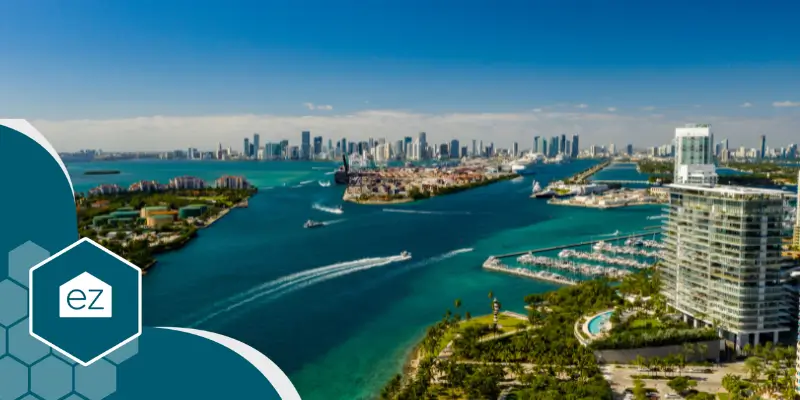
With over 1,700 miles of coastline and thousands of lakes and rivers, water is definitely one of Florida’s defining features. Nearly 900 freshwater springs bubble to the surface, draining into creeks and rivers with crystal-clear aquiline waters. There are also many swamps or wetlands (over 1,000) and blackwater rivers.
But while all that water is excellent for swimming, fishing, and boating, it also means a higher risk of flooding. Make sure your insurance policy covers you in case of a natural disaster, even if you live inland. Even small creeks and runs can back up in high rain situations.
Sinkholes can be problematic
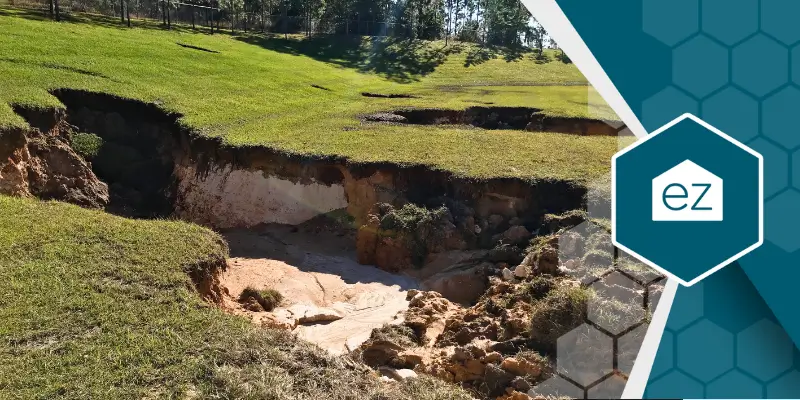
Another thing to be aware of is sinkholes. Since Florida’s topography is primarily made up of limestone (which is porous), sinkholes are relatively common. In fact, it’s estimated that there are over 20 sinkholes per square mile in some parts of Florida!
While most sinkholes are small and pose no threat to property or safety, some have been known to swallow entire houses with little or no warning. Note that the northern and central regions are more prone to sinkholes than south Florida, but they can happen anywhere.
So if you’re looking to buy a home in Florida, get it inspected for sinkholes first. Sellers are supposed to disclose if there has been a sinkhole on their property. Home inspectors can’t say if there is a sinkhole, but they can recommend you get a sinkhole inspection by a certified geologist if they see signs of settling.
Thunderstorms are no joke
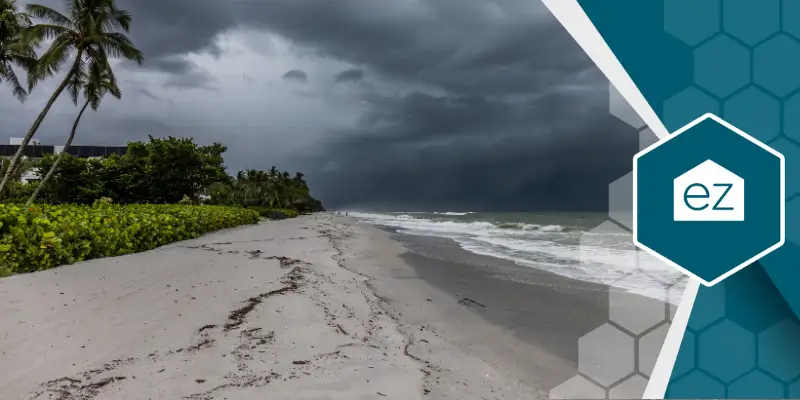
If you’ve never experienced a thunderstorm in Florida, you’re in for a treat! Thunderstorms here are unlike anything else. They can literally form in minutes, dump an inch of blinding rain, and be gone in thirty minutes. These short-lasting summer storms can pack a punch with heavy rain, lightning, straight-line winds, and hail.
Remember, Florida is the lightning capital of the United States, so if you’re prone to anxiety or don’t like loud noises, the thunderstorms here might not be for you.
Neither is the heat and humidity
Florida is HOT. Like, really hot. The summers here are long, humid, and often miserable if you don’t like sweating. As long-time Floridians know, the best parking spot in August is the shady one, not the one closest to the door!
Those coastal breezes keep the atmosphere extra humid most days. Add heat and humidity together, and Florida might not be your place if you don’t like feeling like you can’t breathe.
That being said, the winters are relatively mild (except for a few cold snaps), so it’s an excellent place to escape the snow if you’re tired of bundling up. The year-round average temperature for the state is 72F.
Tropical storms are a possibility–be prepared!
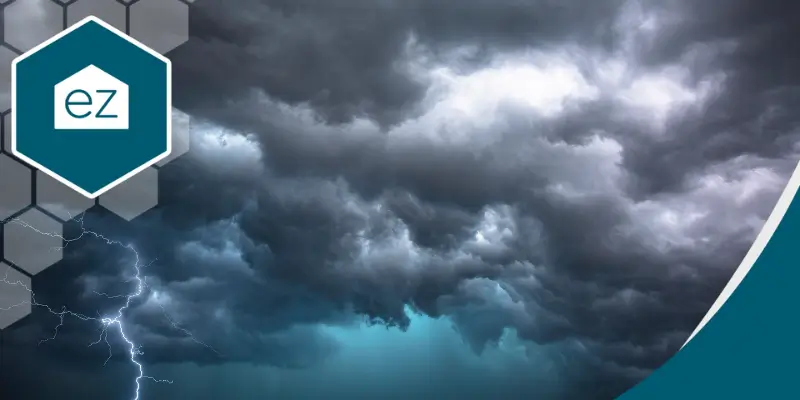
Florida is known for its beautiful weather, but that doesn’t mean we don’t get our fair share of storms. Florida is one of the most hurricane-prone states in the US.
While most tropical storms (the official name for hurricanes with wind speeds below 74 mph) cause minor damage, they can still be disruptive and dangerous. That’s why it’s essential to be prepared before a storm hits.
Make sure you have a hurricane kit stocked with non-perishable food, water, a first-aid kit, and other essential items. You should also plan where you’ll go if you need to evacuate.
If a storm is heading your way, pay attention to the news and weather reports. Wait until the storm passes before attempting to clear debris. Stay indoors as much as possible, and avoid floodwaters and downed power lines if you must go outside.
It’s not all beaches and Mickey Mouse
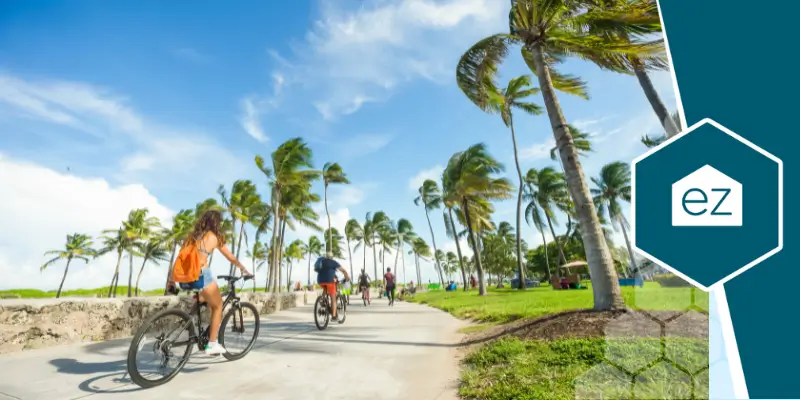
While most people think of Florida as a place to retire or vacation on sandy beaches and crystal-clear waters, there’s much more to this state. In fact, Florida is home to over 100 state parks, which offer a variety of activities like hiking, biking, camping, and bird watching.
Inland and central Florida is actually somewhat hilly and home to abundant agriculture. Find tall pine forests, thick hammocks, and soft, sugary sands in nature preserves located across the state.
If you’re more of a city person, then you’ll be happy to know that Florida is home to some of the most popular cities in the country, including Miami, Tampa, and Orlando. Each city has its unique culture and vibe, so you’re sure to find a place that suits your tastes.
And let’s not forget about our beloved sports teams! Florida is home to two NFL teams (the Jacksonville Jaguars and the Tampa Bay Buccaneers), two MLB teams (the Miami Marlins and the Tampa Bay Rays), an NHL team (the Florida Panthers), and an NBA team (the Orlando Magic).
Wildlife is abundant–and sometimes dangerous
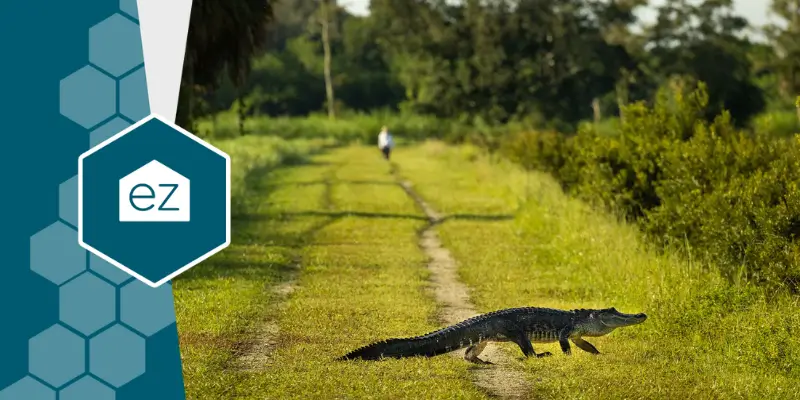
Florida is home to a wide variety of wildlife, including alligators, snakes, spiders, and more. Most people are familiar with Florida alligators, but did you know the state is also home to the only native US population of American crocodiles?
Across Florida, you’ll find six poisonous snakes like the aggressive Florida Cottonmouth and the Eastern Diamond-backed Rattlesnake. Summertime and heavy rains bring out swarms of biting bugs. There are two kinds of poisonous spiders, but perhaps the most annoying bugs are mosquitoes and cockroaches. While harmless, lovebugs create pesky clouds in May and September that can damage paint if not washed promptly off your car.
Of course, not all Florida wildlife is dangerous. Turtles, manatees, and dolphins are a few of the friendly animals you might encounter while living in Florida. In fact, some places rely on wildlife tourism by selling Manatee tours and whale watching. Both coasts have nonprofits that need help protecting sea turtle nests when in season. You can also find endangered species like the Florida Panther and Black Bear.
While most animals are harmless, it’s always best to be cautious when you’re outdoors. Never approach an animal you don’t know, and if you see something that looks dangerous, call a professional.
Don’t forget about snowbird season!
Florida is a popular vacation destination for people from all over the world. That means our state is pretty crowded during certain times of the year.
Snowbird season typically runs from mid-December to early April. You can expect higher prices and bigger crowds at tourist destinations like Orlando’s theme parks and Miami’s beaches during this time. Driving around town or shopping for groceries can be 10-20 minutes longer because of congestion.
If you’re not a fan of crowds, it’s best to avoid popular areas during tourist season. Or, if you don’t mind the crowds, take advantage of the deals and discounts often available during this time.
Beware spring break beaches
Spring break is another busy time in Florida. College students from around the country descend on our state for a week of sun and fun. If a rowdy time at the beach doesn’t sound like fun to you, avoid the sands during March and early April. Popular destinations include Panama City, Miami, Daytona, and Clearwater. Again, prices are higher, and crowds are bigger during spring break, so plan accordingly.
Florida culture is unique–and sometimes quirky!
Florida is home to a diverse population, which means there’s no one “Florida culture.” However, some things are unique to our state, like the infamous “Florida man.”
With such a diverse population, there are bound to be some quirky Florida stereotypes. For example, we’re known for being laid-back and relaxed, even when things get hectic. We also have a reputation for being flaky and forgetful (ask anyone who’s tried to make plans with a Floridian!).
You’ll find that south Florida is very different from north Florida, which is very different from Central Florida. Each pocket of the state has been influenced by its history, geography, and influx of development. For instance, north Florida has more culturally and politically in common with Georgia and Alabama. Both Miami and Tampa have strong Latin connections.
Whether you agree or disagree with these stereotypes, there’s no denying that Florida is a truly unique place to live.
Golfing is a popular pastime in Florida

If you’re a golf fan, you’ll be happy to know that Florida is home to more than 1,000 golf courses. In fact, golf is one of the most popular sports in the state. Some top-rated courses are Seminole Golf Club, TPC at Sawgrass, and Streamsong Resort.
Whether you’re a beginner or a pro, you’ll be able to find a course that’s right for you. And if you get tired of playing golf, you can always go fishing, hiking, or biking–there’s plenty to do in Florida!
The job market is strong in Florida
Florida’s job market is strong, with diverse industries represented. The state’s largest employers include tourism, agriculture, healthcare, and aerospace. Based on the number of employees, three of the biggest companies are Publix, Darden Restaurants, and Jabil. Florida has 18 companies on the Fortune 500 list, including Publix, Tech Data, and World Fuel Services.
If you’re looking for work, you’ll have plenty of options in Florida. And if you’re already employed, there’s a good chance you can find a position closer to the beach!
SEC sports are huge in Florida
If you love college sports, you’ll feel right at home in Florida. Our state is home to two SEC schools–the University of Florida Gators and the Florida State University Seminoles. Plus, the University of Miami Hurricanes has a loyal following.
These two teams have a long-standing rivalry, which means that their games are a big deal every year. If you move to Florida, you’ll quickly learn which team you should be rooting for!
Fresh seafood is always available in Florida
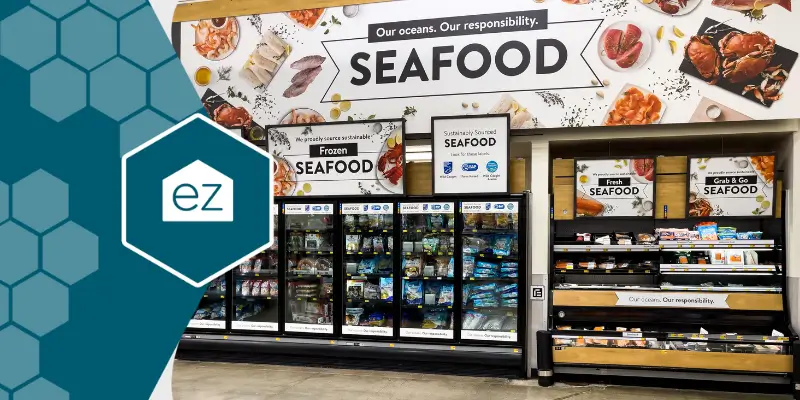
If you’re a fan of seafood, you’ll be happy to know that Florida has an abundance of fresh seafood. You can find everything from shrimp to crab to lobster, and it’s all delicious. North Florida is well known for its oysters, crawfish, and shrimp. Deep-sea fishing catches grouper, tarpon, and marlin up and down both coastlines. The Florida Keys transform into a flotilla during lobster season.
Locals get spoiled with the abundance of fresh-caught seafood all year round.
Shopping is a pleasure
If you move to Florida, you’ll quickly learn that Publix is more than just a grocery store. It’s a way of life with some very local fans. The supermarket chain is a Florida institution famous for its “Pub subs” and quality store brand items. The company is headquartered in Lakeland, but stores are all over the state. If you need groceries, you can bet that there’s a Publix nearby.
Moving to Florida
Whether you’re moving for the weather, the job market, or the lifestyle, there’s no denying that Florida is a great place to live. Just do your research before making a move–and don’t forget your sunscreen! If you’re unsure if Florida is the right place for you, why not compare it to one of its neighbors like Georgia or South Carolina?
Start Your Home Search
Preston Guyton
Share this Post
Related Articles
Living In
Your EZ Guide to Living In Salisbury, MD
Living In
